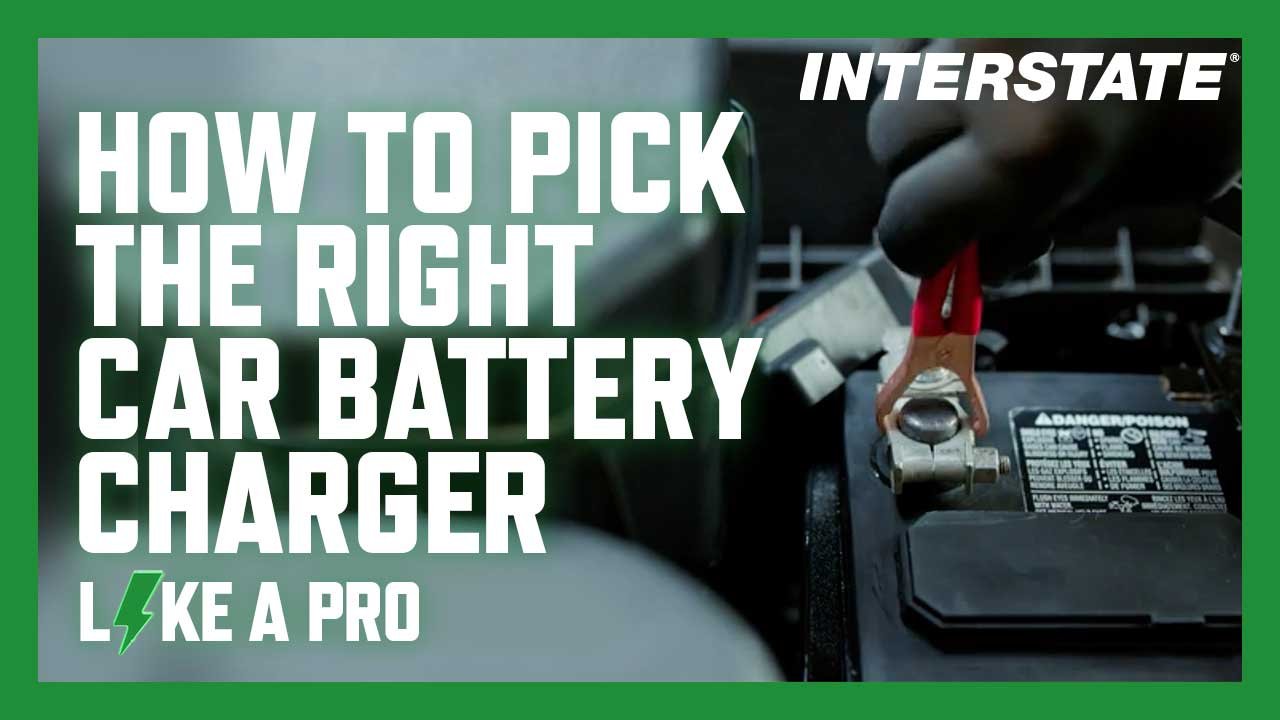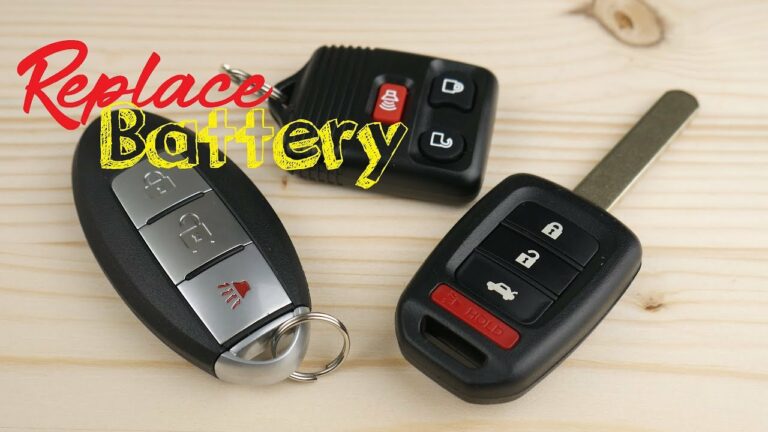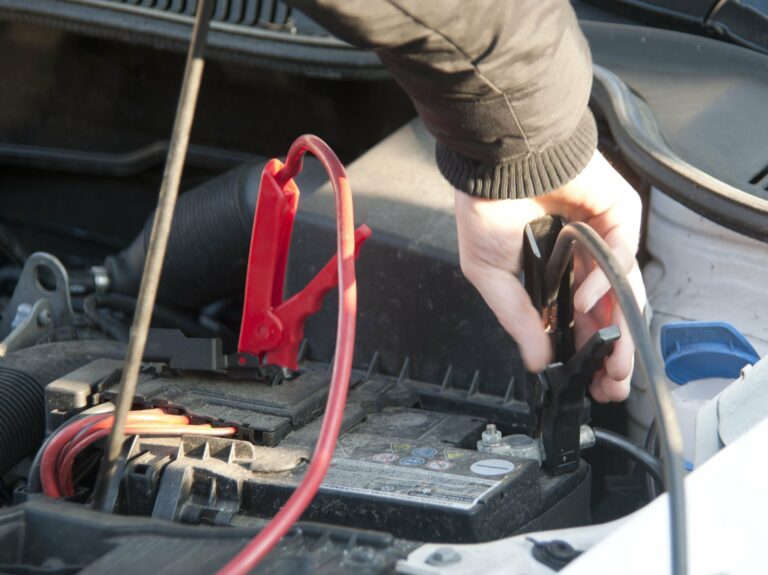How to Choose the Right Car Battery Charger?
Are you struggling with Choose the Right Car Battery Charger? Don’t worry, we’ve got you covered! In this article, we will guide you through the process of selecting the perfect charger for your vehicle without any hassle.
Whether you are a novice or an experienced driver, finding the right charger can be a daunting task. But fear not, because we will break it down for you simply and conversationally, making it easy for you to make an informed decision. So let’s dive right in and learn how to choose the right car battery charger that fits your needs perfectly.
How to Choose the Right Car Battery Charger?
In today’s fast-paced world, having a reliable car battery charger is essential. Whether you’re a professional mechanic or a car enthusiast, knowing how to choose the right car battery charger can save you time, money, and frustration. With so many options available in the market, it can be overwhelming to find the perfect charger for your needs. This comprehensive guide will walk you through the key factors to consider when selecting a car battery charger that suits your requirements.
Determine Your Charging Needs:
Before diving into the world of car battery chargers, it’s important to assess your specific charging needs. Consider the following factors:
Battery Type
– Start by identifying the type of battery you need to charge. Common types include lead-acid, AGM (absorbent glass mat), gel, and lithium-ion batteries. Each type requires a charger specifically designed for it.
Battery Voltage
- Check the voltage of your battery. Standard car batteries typically have a voltage of 12 volts, while larger vehicles like trucks and boats may have 24-volt batteries. Ensure that the charger you select can handle the voltage of your battery.
Battery Capacity
- Determine the battery capacity, often measured in ampere-hours (Ah), of the battery you plan to charge. This information will help you choose a charger with an appropriate charging rate.
Understanding Charging Types
Not all car battery chargers are created equal. Understanding the different charging types will enable you to make an informed decision. Here are the most common charging types:
Trickle Charging
- Trickle chargers provide a low, continuous charge to maintain the battery’s charge level over an extended period. They are ideal for long-term storage or maintaining topped-up batteries.
Float Charging
- Similar to trickle chargers, float chargers deliver a low charge to maintain the battery’s charge level. However, float chargers are designed to automatically switch to a maintenance mode once the battery is fully charged.
Fast Charging
- Fast chargers deliver a higher charge rate to quickly recharge a depleted battery. They are suitable for emergency situations or when you need a quick charge.
Smart Charging
- Smart chargers are technologically advanced chargers that analyze battery condition, adjust charging rates, and monitor charging progress. They provide a safe and efficient charging experience.
Consider Safety Features
Safety should be a top priority when selecting a car battery charger. Look for the following safety features:
Overcharge Protection
- A charger with overcharge protection prevents damage to the battery by automatically stopping the charging process once the battery is fully charged.
Reverse Polarity Protection
- Chargers with reverse polarity protection safeguard against accidental reverse connection, which could damage the charger, battery, and potentially cause injury.
Short Circuit Protection
- Short circuit protection ensures that the charger automatically shuts off if a short circuit occurs, preventing damage to the battery and charger.
Spark-Proof Technology
- Chargers with spark-proof technology reduce the risk of sparks when connecting or disconnecting the charger from the battery, minimizing the possibility of accidents.
Consider Charging Modes and Features
Depending on your specific needs, you might want to consider additional charging modes and features offered by some car battery chargers. Here are a few worth considering:
Maintenance Mode
- Chargers with a maintenance mode automatically switch to a low charge rate to prevent battery discharge when left connected for an extended period. This feature is particularly useful for infrequently used vehicles.
Desulfation Mode
- Some chargers have a desulfation mode designed to dissolve lead sulfate crystals that accumulate on the battery plates over time. This mode improves battery performance and prolongs battery life.
Diagnostic Mode
- Chargers with a diagnostic mode analyze battery condition and provide information on battery health and charging progress. This feature can be helpful for identifying battery issues.
USB Charging Port
- Chargers with a built-in USB charging port allow you to charge small electronic devices, such as smartphones or tablets, directly from the charger.
Consider Portability and Durability
If you require a portable charger or plan to use it in different locations, consider the size, weight, and durability of the charger. Look for features like a compact design, carrying handle, and robust casing that can withstand rugged environments.
Read Reviews and Compare Products
Before making a final decision, make sure to read product reviews and compare different car battery chargers. Online marketplaces, automotive forums, and review websites can provide valuable insights from other users. Pay attention to overall ratings, customer feedback, and any recurring positive or negative comments.
Check Warranty and Customer Support
A reliable car battery charger should come with a warranty and solid customer support. Check the warranty period and the manufacturer’s reputation for customer service. A good warranty will give you peace of mind and assurance that you’re purchasing a quality product.
How to Choose a Battery Charger // Supercheap Auto
Frequently Asked Questions
What factors should I consider when choosing a car battery charger?
When selecting a car battery charger, it’s essential to consider several factors. First, you need to identify the type of battery your car uses, as different chargers are compatible with different battery types. Additionally, consider the charger’s amperage rating, as this determines how quickly it can charge your battery. Safety features, such as overcharge protection and reverse polarity detection, are also crucial. Finally, it’s worth considering the charger’s portability, durability, and warranty to ensure it meets your specific needs.
Should I choose a charger with automatic or manual operation?
Opting for a car battery charger with automatic operation is generally recommended. Automatic chargers are designed to monitor the battery’s condition and adjust the charging rate accordingly. They also typically feature safety mechanisms to prevent overcharging. Manual chargers, on the other hand, require constant monitoring and adjustment, increasing the risk of overcharging or damaging the battery if not used correctly. Therefore, an automatic charger provides convenience and added peace of mind.
What should be the ideal amperage rating for a car battery charger?
The ideal amperage rating for a car battery charger depends on the size of your vehicle’s battery and your charging requirements. As a general rule of thumb, you should choose a charger with an amperage output of at least 10% of your battery’s capacity. For example, if your battery has a capacity of 60Ah, opt for a charger with a minimum output of 6A. This ensures efficient charging without risking damage to the battery.
Can I use a car battery charger for other types of batteries?
While car battery chargers are specifically designed for automotive batteries, some models may also support charging other types of batteries, such as marine batteries or deep-cycle batteries. Before using a car battery charger for any battery other than a car battery, make sure to check the manufacturer’s specifications or consult the user manual to ensure compatibility. Using a charger not suitable for the battery type may lead to damage or overheating.
Is it important to choose a charger with safety features?
Yes, it is crucial to select a car battery charger that incorporates safety features. Look for chargers with features like overcharge protection, which automatically stops the charging process when the battery is fully charged. Reverse polarity detection is also essential, as it prevents damage to the battery and charger by alerting you if you connect the clamps incorrectly. These safety features help protect your battery, your charger, and yourself from potential hazards.
Should I consider the charger’s portability?
The portability of a car battery charger depends on your needs and usage. If you intend to use it primarily at home or in a fixed location, portability may not be a significant factor. However, if you frequently travel or require a charger that can be easily transported, consider choosing a compact and lightweight model. Portable chargers are convenient for emergencies and can be used on the go, ensuring you are prepared for unexpected battery issues wherever you are.
Final Thoughts
Choosing the right car battery charger is crucial for ensuring the smooth functioning and longevity of your vehicle’s battery. Factors such as compatibility with your battery type, charging capacity, safety features, and ease of use should be considered. It is important to select a charger that meets your specific needs and requirements. By following the guidelines outlined in this article, you can confidently choose the right car battery charger that will keep your vehicle powered up and running smoothly for years to come. Remember, when it comes to car battery chargers, making an informed decision is key to optimal performance and longevity.



